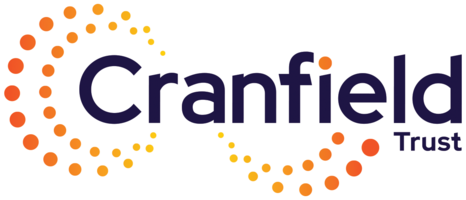Following my blog article on active trusteeship last November, a few trustees posed me with some questions which I put under the heading of “What is the role of a board member?”
Now, this simple question is quite a difficult one to answer – or at least answer succinctly! Here is why. In my experience, the role of a board member is far from simple. The circumstances of the charity they serve may mean that the role of a board member is often far from fixed – indeed, it can be quite muddied, shifting and sometimes even unsettling. All that said, at least in my mind, there are at least several roles or archetypes that every board member will (or should!) encounter on their journey. I hope that the following will help board members – new and seasoned – to explore their role more fully and hopefully increase the value of their contributions to the charities they serve.
1. The board member as ‘steward’
This role is the one that most people alight upon when thinking about the role of a board member. This is concerned with what I call the ‘legal governance’ side of board membership. So, this role is focused on the propriety of governance and ensuring that the charity is acting legally and correctly. At a deeper level though, this role is concerned with the efficiency of governance. So, in plain English, are the right things being done and in the right manner? It is a process role – minutes are taken, decisions recorded, transparency assured. All the stuff you find in the constitution of a charity and the legal frameworks applied to charities within the legal codes of your local legal jurisdiction. Now, the good news is that this role is quite simple to learn and it also matters. Transgression of these legal codes carries consequences and can (quite rightly!) be severe. For a board member to ignore this role is a straight failure. It must be there. Ignore it at your peril. But it is only part of the wider roles that you must play which brings me onto…

2. The board member as ‘captain of the ship’
This is a remarkably interesting role and one that many board members struggle with – at least initially. By ‘Captain of the ship’ I mean that the board has the role of plotting the course or voyage of the charity they serve. To do this requires board members to adopt a sense of ‘altitude’ – analogous to standing on the bridge of a ship with a pair of binoculars at hand. The engine room is not the place to plot a ship’s course and, whilst it may be more familiar or comfortable to board members to dive into the detail (stoking the engines and trimming the controls), they need to be holding their positions on the bridge and helping the charity to make its voyage. This requires a degree of nerve and the best distinction or advice I can give is the following maxim:
"The board manages the CEO who manages the operation of the charity"
In other words, as a board member, stick to board work and not day to day operational work. There is a slight exception to this which I will discuss later (namely the board member as ‘helper’) but, as a rule, I always advise board members to stick to board business.
3. The board member as ‘risk manager’
The subject of risk is one that most board members have a poorly defined concept of. In the lifecycle of any charity, risk is always present but, Janus like, it has two heads or sides to it. By inclination, many board members raise their attention when they perceive the risks attached to doing something – for example, introducing a new service or exploring new opportunities. This is perfectly good however there are also risks attached to NOT doing something! This gets a lot harder as, failure to grasp an opportunity may do your beneficiaries a disservice. So, the board member must be alert to both sides of the ‘risk coin’ and probe effectively to see that risk is being managed effectively. Simply posing the question “What is the risk of doing this or, of not doing this course of action” is an instant ‘smart question,’ for any board member. Also, if your charity does not have a risk register, then insist on one being produced! Risks that go unrecorded tend to get ignored until it is too late to manage them. In a future article I will discuss risk and how to manage it within a charity.
4. The board member as ‘helper’
Earlier I mentioned that there is an exception to my role of board member as ‘Captain of the ship.’ This is it and I will explain more fully. Board members need to be able to take work away from the board and not just bring it to it. Certainly, many of the charities I speak to are at almost full capacity in terms of the workloads of their staff. Many of the enhancements that may be needed in say, reporting or marketing or development are on the radar screen of the operational staff of the charity but, there are only so many hours in a day and given the pressures on the sector now, there just isn’t capacity amongst the operational staff to do everything. This is where the board member can step in and give leadership and expertise to help break these log jams.
A good board member can bring their skills and expertise to bear and help guide a breakthrough or improvement and drive this through to completion. Anyone who has read my previous blogs or seen my webinars will know that I bang on about ‘taking work away from the board’ and, there is something incredibly powerful when you see a board member stepping in and taking work away from the board. This role of ‘helper’ is something that I consider a hallmark of a great board member.
5. The board member as the ‘voice of the beneficiary’
Before I go on, I will pose a rhetorical question to you. Who is the voice of your beneficiary on the board? This is a dreadfully tricky question to answer for many boards. I will just make it even more dreadfully difficult to answer because here is a sub-question:
"If you have a voice of your beneficiaries on the board, can you be sure it is the authentic voice of all or at least most of your beneficiaries?"
I am often quite surprised how many boards do not have a beneficiary on them or have no obvious ‘hot line’ to the voices of their beneficiaries. Alas, there are no easy answers to the questions I have posed but, remember, in truth, as a board member you are there to be the voice of the beneficiary and, if you feel a sense of not being able to answer the questions I posed, then raise this concern and work with your board to start getting answers. The positive that goes with this role is what I call the ‘irreducible question’ namely, whenever a decision is required from the board, the keystone question you need ask as a board member is ‘How does this improve the lot of our beneficiaries.’ It is a great question and one that every board member should keep in the front of their mind.

6. The board member as ‘storyteller’ or ‘ambassador’
When I worked in the commercial world, I remember being told by a colleague that “everyone is in sales”. He was right and his sentiment was that every single person that worked for the company had a stake in its betterment and success: every occasion when dealing with a customer was an opportunity to put forward the company in its best light and secure future business.
Applying this to the charity sector, it surprises me that many board members don’t quite grasp that they are ambassadors for their charity and that they need a story to tell potential contacts and funders or donors. Every board member needs a relevant story to tell about their charity and they need to always carry that story with them. I call this ‘Investability’ by which I mean that every part of a charity should be convincing me, as a potential donor, that I should invest my time, money, emotion or support to them. The learning point in this role is that you need a story, and you need to tell it at every opportunity to potential donors.
7. The board member as ‘interpreter’
In stark contrast to the role of board member as steward, this role is about what I call ‘practical governance.’ By this I mean the art or science of discerning what is happening in the wider world and relating this back to your charity so that it may act in a meaningful way to the wider events happening about it. To my mind, this is one of the most critical roles of a board member. As a board member you come with skills and insights. You are a ‘filter’ who can screen out the key information of what is happening in the wider world and bring the nuggets of crucial information back to your board. In my view, every board agenda should always have an item where board members are asked to contribute their view or ‘intelligence’ as to what the wider world is doing and how this may impact their charity – positively or negatively. A good, diversely thinking and skilled board can glean a huge amount of insight from these sorts of exchanges.

8. The board member as ‘explorer’
The last few years have been uncharted territory for many charity boards. Like the old medieval sea charts, there were bits that said, ‘there be dragons here’ and, thankfully, the sector sailed into them! The earth was never flat, nor were there dragons. However, there were an entire range of challenges that had never been encountered before. In part, necessity forced a lot of boards into this territory but, alongside this, there was also a lot of courage. Charity boards will be faced with similar in the future (i.e., the cost-of-living crisis and its fall-out) and, I have no doubt that yet again, the sector will rise to the challenges it faces. That said, board members need to be alive to the possibilities and opportunities that present themselves – even in tough times. What was held precious before, needs to be re-examined. For example (and this is another thing that I ‘bang on’ about) collaboration within the sector is far from a mature situation. There are many opportunities where collaboration with similar or indeed, different organisations can produce novel yet better outcomes for the wider community. As an explorer, the role of the board member is to push the boundary of possibilities and look beyond the horizon.
9. The board member as ‘challenger’
This role appears simple yet, in truth, it is not. Any board member can mount a challenge but, the real art is knowing when and why to mount a challenge to board business. Now, I am not for one moment advocating that you become the ‘awkward person’ who challenges everything (and believe me, I have sat in board meetings where there was more than one of them at the table)! Instead, I am advocating for board members to have a healthy sense of being confident to challenge board matters and do so in a way that is appreciative i.e., it drives towards a better result. My suggestion of the ‘irreducible question’ (how will this decision improve the lot of our beneficiaries) is a great starting point, as is my advice to ‘follow the pounds’ – where is money coming from, what happens to it and what is the outcome?
Recently, a new trustee was speaking to me and said “I am uncomfortable making challenge in the board – everyone is chapters ahead of me. What do you advise?” My advice was simple:
“Never leave an item of board business where, however inelegantly, you feel you have something to say. Keep returning to it and if needed remind the board that you have collective responsibility for decision making and you don’t feel comfortable currently – and can that be minuted please.”
A few weeks later I got a phone call from her, and she said that it had worked a treat!
As a board member you need to be able to challenge and be comfortable in that challenge and, if you find that your challenge is constantly being beaten down, then I strongly suggest that you reconsider your role on that board.

10. The board member as ‘legacy maker’
For this role, I am indebted to the conversation I had some years ago with a top corporate lawyer who was on the board of one of my most admired charities. In our conversations, she pointed out that one key plank of the role of board members that was often overlooked was their mission to leave a legacy. As someone whose days were spent dealing with the boards of large companies, she had observed that quite often board members who were on tenured time, had failed to acknowledge that their time on their board was to leave their company in a better position than they found it. Rather than being the ‘developers’ many of these board members were in fact, the ‘maintenance crew.’ And thus, it is within the charity sector. As a board member you are there to change the world for the betterment of your beneficiaries. Your mission from day-one should be to think “How will I be remembered when I stand down from the board?” Please, and I mean this sincerely, as soon as you become a board member, write down what you want your legacy to be and then work assiduously towards it.
So, what is the role of a board member? Well, hopefully, the above has given you something to consider and shown the many distinct roles that you may have to play as a board member. I am not pretending that being a board member is going to be plain sailing but, please think about these roles and where you may have/be able to adopt them. We all must adopt distinct roles in life and being a board member is no different – it is how quickly and effectively we adopt these roles that makes the real difference.
At Cranfield Trust we want to build your confidence and capabilities to thrive as a charity. We offer pro bono management support, which is completely free, so please talk to us to find out how we could help your charity. I hope that my article is of interest to you, and I look forward to supporting you and helping you to become an even more successful charity.





